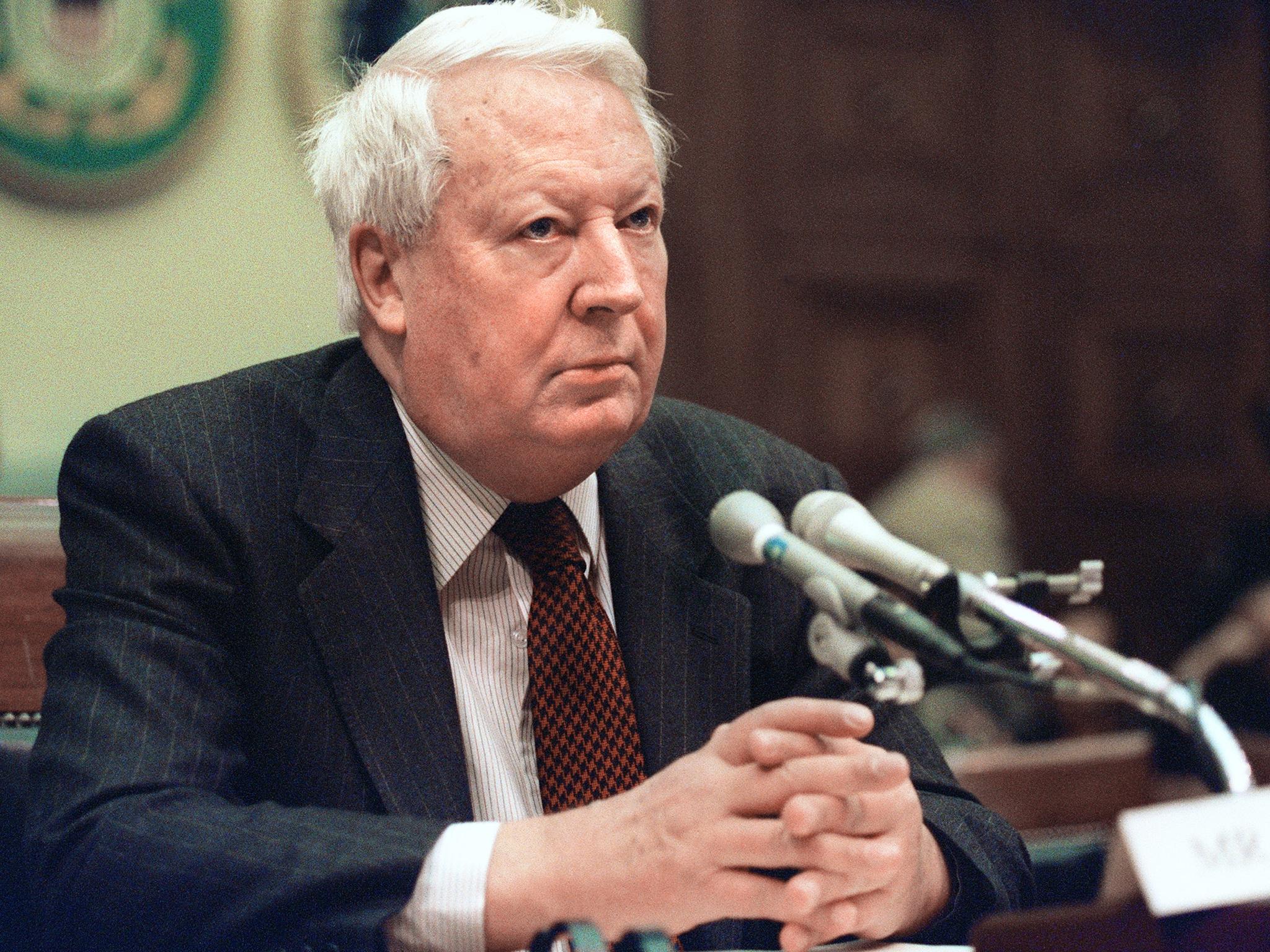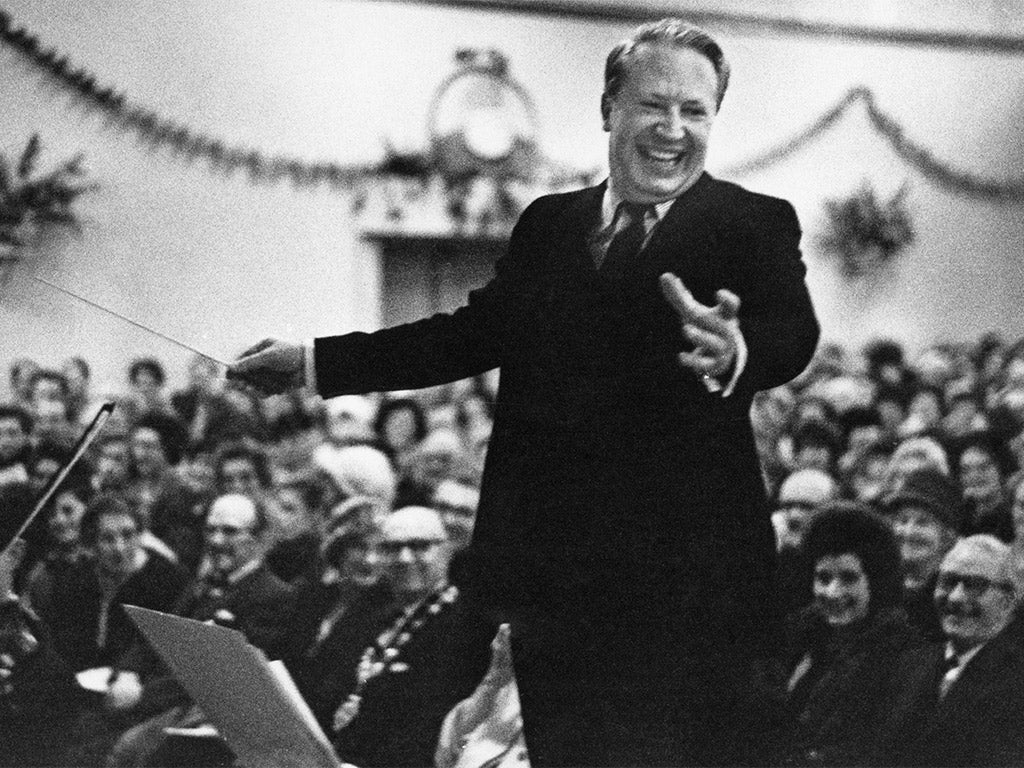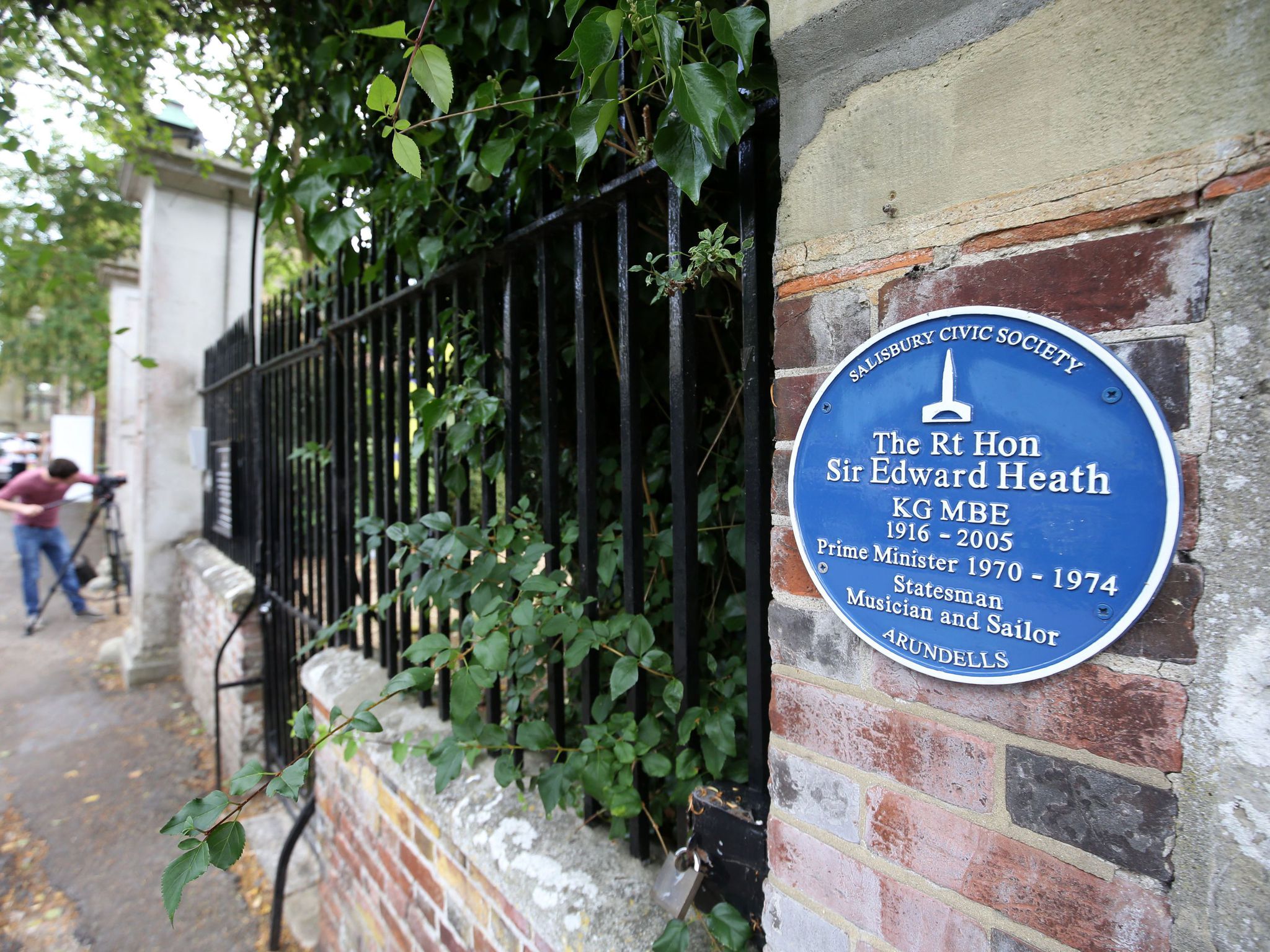Edward Heath abuse claims: Even as an enemy of the former PM I am appalled by this witch-hunt
I have my own personal loathing for Heath, as he had prevented me from being included on the party’s list of official candidates

Your support helps us to tell the story
From reproductive rights to climate change to Big Tech, The Independent is on the ground when the story is developing. Whether it's investigating the financials of Elon Musk's pro-Trump PAC or producing our latest documentary, 'The A Word', which shines a light on the American women fighting for reproductive rights, we know how important it is to parse out the facts from the messaging.
At such a critical moment in US history, we need reporters on the ground. Your donation allows us to keep sending journalists to speak to both sides of the story.
The Independent is trusted by Americans across the entire political spectrum. And unlike many other quality news outlets, we choose not to lock Americans out of our reporting and analysis with paywalls. We believe quality journalism should be available to everyone, paid for by those who can afford it.
Your support makes all the difference.Fifty years ago, Sir Edward Heath became leader of the Conservative Party. To mark this anniversary, two Sundays ago, the BBC Parliament channel staged a marathon "Edward Heath Night" with hours of film footage covering his career as party leader, prime minister, defenestration by Margaret Thatcher and his "Incredible Sulk" on the backbenches for a further 25 years.
As I relived the nightmare of his 1970s premiership through shaky TV footage of the three-day week, Bloody Sunday, miners’ strikes, prices and incomes policy failures, I thanked God, once again, for the courage of Margaret Thatcher in deposing one of worst Conservative leaders and prime ministers of the 20th century.
I have my own personal loathing for Heath, as he had prevented me from being included on the party’s list of official candidates. During the years I sat directly behind him in the Commons chamber between 1979 and 1997, he would occasionally turn and glower at me as I cheered Thatcher.
In all that time, he spoke eight words to me – in 1993, when I was appointed as a government whip: “I see they’ve shut you up at last!”
So there is no one more likely to celebrate the trashing of Heath’s record in recent days than me. And as someone who voted against Europe in the 1975 referendum, I hope that if the public wants retribution on Heath, they will yet get their chance to demolish his only remaining legacy by voting No in the forthcoming EU referendum.

But I want his record trashed for the right reasons – not because of lurid claims that he was a serial paedophile. I find it hard to believe that, from 18 June 1970 until his death 35 years later, when he was permanently guarded by Special Branch protection officers wherever he went and was waited on at all times by household staff and personal assistants, he could possibly have engaged in paedophile activity without their knowledge and connivance.
Of course, in the current febrile atmosphere, when it seems to be automatically assumed that nearly every dead politician of his era was a paedophile, it is inevitable that these police inquiries must now take their inconclusive course. I hope they will include interviews with every known policeman who guarded Heath. There are also still plenty of living political assistants – Lord Hurd, Lord MacGregor and Lord Waldegrave – who could provide useful insights to the police into unexplained diary absences.
The truth is, as Robert Vaudry, Heath’s PA from 1988 until 1992, said in a BBC interview: “We ran his life like a military campaign. We knew what he was doing every minute of every day during that four-year period. So to think that there were things going on that we weren’t aware of would be surprising, shocking and incredulous.”
It might also be useful if the 1,000 police officers now investigating Heath were made first to read Phillip Ziegler’s authorised biography, along with Heath’s own autobiography. This will help with the allegation that a 65-year-old man, when aged 12 in August 1961, was picked up by Heath on the A2 in Kent and taken to his flat in Park Lane to be raped. On 1 August, Harold Macmillan launched the UK’s first – unsuccessful – bid to join the Common Market. A Commons debate ensued which Heath, as Lord Privy Seal, wound up on 3 August. Immediately afterwards, Heath left for St Jacut-de-la-Mer in Brittany to stay with the multi-millionaire Madron Seligman and his wife, Nancy.
During his stay, he bought an English newspaper with the headline “Heath to negotiate with ‘The Six’”. He records on page 211 of his book: “That was the first indication I had that the announcement had been made in London”. He returned at the end of August to begin preparations for an immediate tour of Europe. Bexley, the A2 and indeed Parliament would see little of him for the two years of negotiations which would end with General de Gaulle’s “non” in 1963. Oh, and for the record, Heath never lived in Park Lane. From being elected in 1950 until the early Sixties, he leased a flat in Petty France before moving to the Albany, where he lived until becoming PM.
Wiltshire Police are conducting inquiries relating to his residence at Arundells, in Salisbury. Dates again are important. He moved there in 1985, shortly before his 70th birthday, living there until he died aged 89. I’m not suggesting that rampant paedophiles of that age do not exist but with a permanent police presence and chauffeur, and staff complete with housekeeper (I don’t think Heath could even boil an egg), it is difficult to imagine such liaisons without police connivance.
Heath was always an IRA target throughout his retirement. He had presided over the Bloody Sunday affair in 1972 and imposed direct rule on Belfast by abolishing Northern Ireland’s office of Prime Minister and suspending Stormont. He incurred the wrath of nationalists and unionists alike.

Heath was party leader from 1965 and was an instantly recognisable figure. Homosexuality of any kind was illegal until 1967 and it is hard to imagine the Leader of the Opposition being protected by the Labour Government or the Establishment if his alleged secret paedophile activities were known but being covered up.
Only two years earlier, the Establishment had been blown up by Heath’s cabinet colleague, Profumo, who was embroiled in blackmail, Russian spies and affairs with call girls. The names of Christine Keeler and Mandy-Rice Davies should still strike fear and terror in every Tory MP engaging in sexual activity with anyone other than a spouse. The mood of the press, post-Profumo, was that the era of the Establishment cover-up of its peccadillos had already ended. As PM, Heath himself had to deal with Lord Lambton’s call-girl dalliances in 1973, resulting in Lambton’s resignation from the Government.
And there was no protection in 1958 for the Tory MP for Harrow, Ian Harvey, when he was caught with a guardsman in the dark in St James’s Park. Arrest, charge and a £5 fine for gross indecency followed. Harvey resigned from Parliament with the Tory hierarchy anxious to clear the decks before the 1959 general election. Guess who was the Chief Whip in Macmillan’s government? Yes, for five years, from 1955, Heath served as Eden’s and Macmillan’s feared but highly respected Chief Whip, handling Harvey’s peccadillos with extraordinary tact.
So Profumo, Lambton and Harvey give the lie to the notion that Heath was free to paedo, cruise and cottage his way through politics, certain that the Establishment would cover for him.
Ghastly political failure? Almost certainly. Serial paedophile? I need more – much more – than Wiltshire Constabulary has so far served us with. Maybe this is one for Inspector Clouseau.
Michael Brown was a Conservative MP, 1979-1997
Join our commenting forum
Join thought-provoking conversations, follow other Independent readers and see their replies
Comments